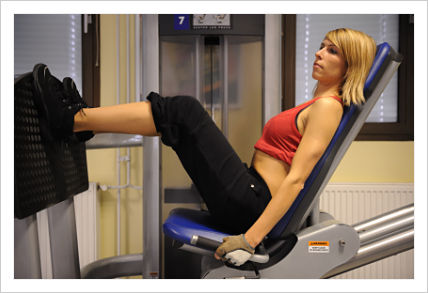
Well it’s that time of year again. The sun has once again succeeded in the climb to its zenith of the summer solstice, and has now begun its gradual decent. Progressively cooler temperatures are chasing the yelping Dog Days of summer on their way toward the equator, and soon the skies will be filled with flocks of geese and birds joining in the annual pilgrimage south. In Minnesota we’ll soon be doing our own flocking to the countless orchards dotted across our land of 10,000 lakes, and sipping warm apple cider in front of a crackling bonfire in a desperate attempt to soak up every last remaining moment of outdoor activity as we gradually descend into hibernation mode.
This time of year is a time filled with great changes and migrations, and perhaps none are more profound and life changing than that of the college student. College is a time for expanding your mind and your horizons, testing your prowess of time management, honing your impeccable ability to write like the wind when you’re under the gun, and taking on a world of new challenges. Perhaps the biggest single challenge students face year after year is the ability to maintain a healthy lifestyle while in the midst of so many demands, both scholastically and socially. Below are 10 weapons of a two part plan that will aid you in your defense against the impending onslaught of unhealthy habits, which at this moment are precariously perched and awaiting the opportunity to attack.
Part 1- Eating Healthy in College
1. Drink Less Beer/Alcohol – C’mon, you knew it was coming. Definitely not the most popular recommendation, but with the typical beer being 100 to 180 calories per 12 ounces, indulging in moderation is truly one of the most effective habits against weight gain. If you’re going to indulge, it would behoove you to check out both the list of My Top 20 Healthiest Beers, as well as 3 Muscle and Alcohol Truths first.
2. Eat Regularly – eating regularly will help to keep your energy levels up, and will also help to keep you from effectively cramming the caloric content of a days worth of meals into one meal that happens to take place at 10 pm.
3. Control Your Portions – Avoid sizes containing the words mega, super, and large.
4. Take and Eat – Avoid the temptation of eating directly from the bag or carton. Taking what you plan to eat, and then putting the container away will help to keep your portion control front and center, which will allow you to better manage your portion control and avoid overeating.
5. Avoid Cafeteria Trays – Avoiding cafeteria trays will assist you with portion control by limiting what you can eat at one time to what you can carry in two hands. If you need an assistant to help carry your lunch, you’re probably eating too much.
6. Snack Smart – avoid snacking late at night, such as when cramming for an all-nighter. Keep healthier snacks around like Greek Yogurt, protein bars with low sugar, fresh fruits and vegetables, and nuts like almonds. Snacks of this caliber are much more nutrient dense than snacks like chips and candy, and will therefore satisfy your hunger much more efficiently.
7. Don’t Pill Pop – Forget the weight loss pills as many can be dangerous and the effects are rather short lived.
8. Drink Water – Ensuring that your body is well hydrated will help to keep you performing at your best both mentally and physically. Proper hydration keeps your skin and internal organs healthy. Be sure to sip on water consistently, even if you don’t feel thirsty, as feeling thirsty is an early sign of being partially dehydrated.
9. Allow One Cheat Day – Allow yourself one cheat day per week on which you allow yourself to indulge in absolutely anything your heart desires.
10. Eat this Not That – College life is filled with grabbing food on the go with friends, so I strongly recommend picking up the book Eat This Not That! Restaurant Survival Guide: The No-Diet Weight Loss SolutionFood Counter Books)
. I totally love this book! The book breaks down some of the most common choices people make at various restaurants, which coincidentally tend to be some of the unhealthiest dishes on the menus, and then offers several alternative “healthier” choices. Some of the recommendations may surprise you. For instance, did you know that by opting for a Big ‘N Tasty at McDonalds over the Chicken Selects, you’ll save yourself 240 calories and 11 grams of fat? Check it out!
Thanks for stopping by and sharing your journey with us! Feel free to share any recommendations you have for healthy eating in college in the comments section below, or say whatever feeds your needs.
Part two will be coming soon, so stay alert!
Rock it!
-Matt




Ah, the freshman 15. From what I remember, the difficult part of eating in college was the lack of good food choices on campus, and nothing close enough off of campus. I tended to bring a lot of my own food, but that was not always an option.
This is true Todd. Although many colleges have improved their options for health conscious students, it is often still easier and more cost effective to simply bring your own.
Great tips. I try not to use trays or eat out of containers. I just wish you hadn’t said such horrible things about chicken selects. With Chipolte BBQ sauce.
I agree that it’s important to eat regularly. If you’re not going to go the route of Intermittent Fasting, you might as well eat 5-6 small meals a day like we used to preach before IF clearly out-classed frequent eating.
So true! Still haven’t tried IF, but it’s on my “to do” list after the month of weddings is over. 🙂 “Weddings? I LOVE weddings, drinks all around!”
OK, so this list is pretty complete – but if I were to have generated it based on my experiences in college, my first point would have read:
1. Don’t eat pizza and wings every night for dinner.
And then of course, the cheap beer. Ah, I miss my younger years……
Love the pizza and wings tip! Save some of that pizza for breakfast on the go when you’re on your way to class the next morning. 🙂
Actually, most of these tips are great even if you’re not in college 😀
The key is to be smarter about the choices of what you do try to eat. Make smarter choices, and you’ll feel better and be healthier.
Thanks for sharing these great tips!
Amen Grady! I’ll be the first to admit that I make some stupid choices, but I learn from them. 🙂
It’s Friday so I’m thinking of grabbing a Sam Adams. I’ve heard it’s “always a good decision.” Yes!
Best wishes!
-Matt
Matt,
Great stuff.
I wish when I was in school I ate better.
Rick Kaselj
I actually picked up 20-lbs as a freshman, but most of it was muscle… I was pretty scrawny when I graduated from high school… LOL!
Yeah, there’s always a couple guys like you in every crowd!
I was the “skinny” kid from elementary school to the end of high school, and my dad had a weight room in our house, so I can only imagine the scarecrow I would have been had I not worked out at all. It’s amazing what several years of college and $0.75 kamikazes can do to your waste-line. Yikes! 🙂
-Matt
This was very useful Matt! Too bad I didn’t have this advice 5 years ago when I began in college haha. But still, very useful information even if you’re not in college.
If I can add something, I would say that in my experience, it’s also useful to have people around you who are also like-minded in healthy eating. It can be very easy to fall into poor eating habits when you’re surrounded by people who, well, eat poorly!
For me it was hard to surround myself with people who were also like-minded in that they also wanted to eat healthy. It was college, not a lot of college students are concerned about healthy eating in my opinion. But when I did find those types of people, whether it was just one person or three people, I tried to make most of time to hang around them more, than others who weren’t ‘health-minded’.
I hope that made sense.
thanks again for the useful info! Definitely worth remembering.
-Brandon
Hey Brandon!
I hinted a little about this in the first point of the follow up post to this post, 10 Fit Tips to Battle College Weight Gain, but you’re 100% right. We are who we hang around rings true far beyond the bounds of fitness, and can probably be extended into every single area of our lives. When you surround yourself with positive, successful people, you just have an increased propensity to emulate their behaviors.
Of course the opposite is also true. Fat out of shape people tend to have fat out of shape friends, and dogs, and cats, etc…Does this mean you should cut ties with anyone who won’t workout? Not necessarily, but it’s important to at least notice the way being around the various people in your life makes you feel.
People used to say that we befriend people who are like us, but several studies have said this idea is FALSE. They indicate that we tend to befriend people who engage in similar activities.
Thanks again for stopping by, and come back any time.
-Matt
Hey,
Students are often broke, but that doesn’t mean that one cannot afford healthy food. More expensive food isn’t necessarily more healthy food! It is important to eat healthy, because unhealthy food leads to obesity and other healthy problems. My favourite food (when I was studying) was cottage cheese with cinnamon and mixed with pieces of apples and some raisins. You should try it sometimes – it is healthy and light, full of proteins and it gives you some energy. I even wrote an article about it, take a look.
Also, be sure to exercise a lot so that you stay in shape. But the most important factor is food! Imagine food as bricks. With bricks you can build a nice house, but you have to do some physical work in order to do that 😉 Hope you get me 😉
Regards, Tej